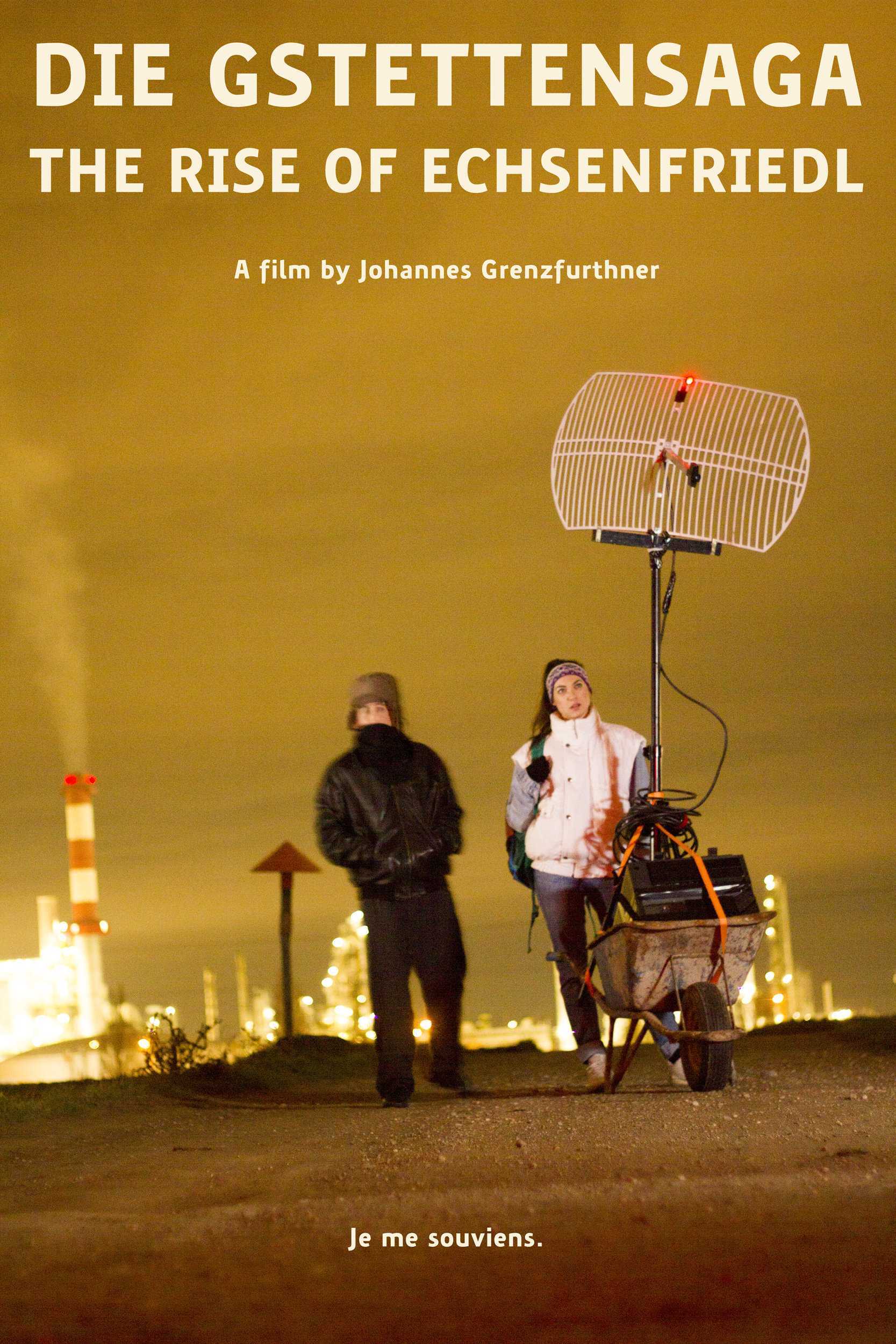Film Review: Die Gstettensaga: The Rise of Eschenfriedl - A Call to Class Consciousness for Hackers
by by Ishan Raval
(This film review contains massive spoilers.)
The liberating as well as discouraging thing about Die Gstettensaga: The Rise of Eschenfriedl, directed by Johannes Grenzfurthner of the Vienna-based art-technology-philosophy collective monochrom and jointly produced by monochrom and Traum und Wahnsinn Medienkollektiv, is that it's set in the future.
Die Gstettensaga takes place in the post-apocalyptic world built out of the wreckage of the "Google Wars" between the factions of the world's two superpowers (China and Google) and led to the collapse of civilization. The story begins when the new society (which already has a fully-fledged, worst-of-21st-century reminiscent capitalist economy) is on the verge of a technological revolution: The old productive forces of print communication are being threatened by the specter of the new information technology.
So, under the pretense of wanting to adapt to the technological currents, newspaper mogul Thurnher von Pjölk sends the journalist Fratt Aigner and the nerdy technician Alalia Grundschober to find and interview the fabled Eschenfriedl for a televised broadcast. But actually, Eschenfriedl, apart from being a pioneer of the new media technologies, is a basilisk, and von Pjölk's plan is to kill all the nerds who watch the broadcast through Eschenfriedl's gaze, and, in the process, discredit the new media technology as well. But when Fratt and Alalia find Eschenfriedl, they are won over by him and decide to join his commercial endeavors by overthrowing the old order.
Potentially emancipatory techno-cultural production has been swallowed up by capital before, but setting this story in the past would have made it a documentary, a mere historical report. Setting it in the present would have been defeatist. But setting the film in the future - apart from better facilitating monochrom's eccentric, over the top "cinema grotesque" indulgences - forces hackers to confront a choice: Will we let ourselves and our ingenuity be recuperated by all-consuming market forces? Or will we come together - as is our potential - as the class that ends capitalism's conquest to secure all means of production in today's case, our ability to pull off remarkable feats of producing and communicating information - under the form of private property?
monochrom presents an undeniably undesirable future that could be ours if we're not careful, but also parodies it to the extent that it's clear that it's not prophesying with certainty that we're headed there: Die Gstettensaga thus becomes a reality check that retains the hope of redemption.
Furthermore, this picture of the future that is painted, though obviously pertaining to the fates of individuals, also forces contemplation of the crises we face as being matters of a collective fate: It's us - the class of hackers - versus those who wish to exploit us, profit from our productive capacities, and hold humanity back in the process. Die Gstettensaga isn't just a cultural creation, an abstraction upon the world, i.e., a work of the hacker class. It is a work that, if we look at it and ourselves in the right (or, should I say, left) way, constitutes us as a class - that form of collective being which is the only way to fight the civilizational dystrophy the movie depicts.
Die Gstettensaga: The Rise of Echsenfriedl is coming to a film festival, hacker con, or The Pirate Bay near you.
(Watch on Vimeo)
